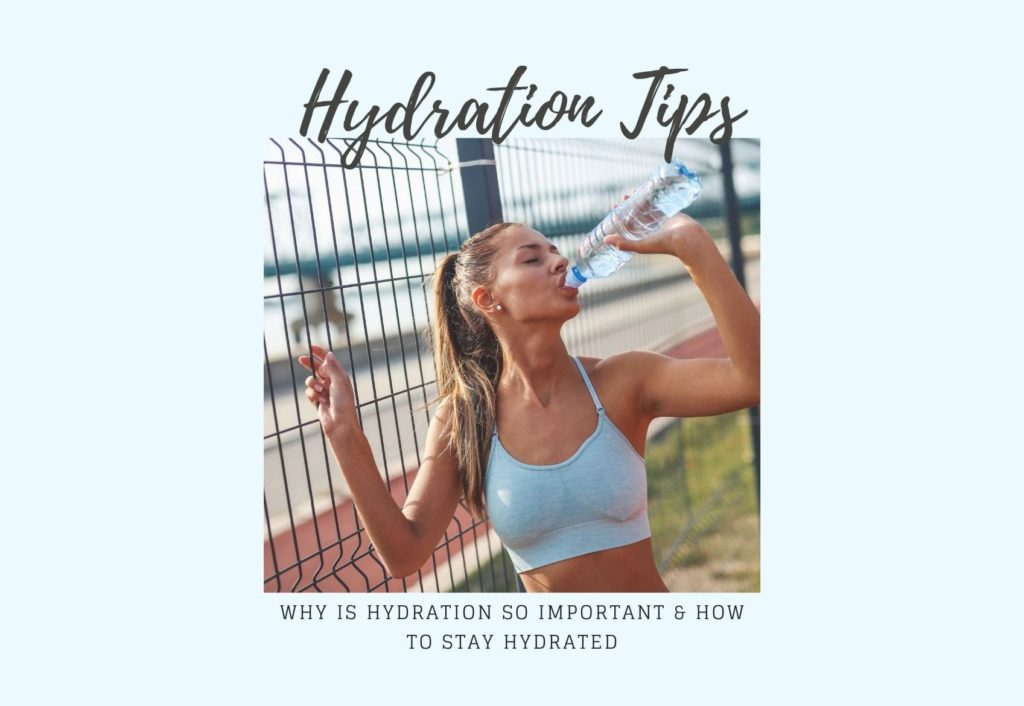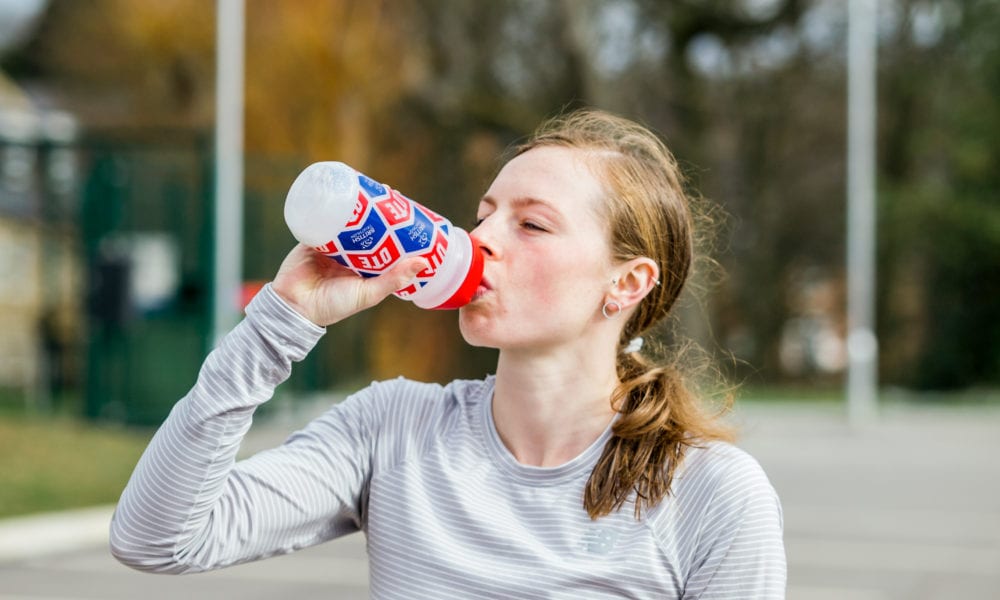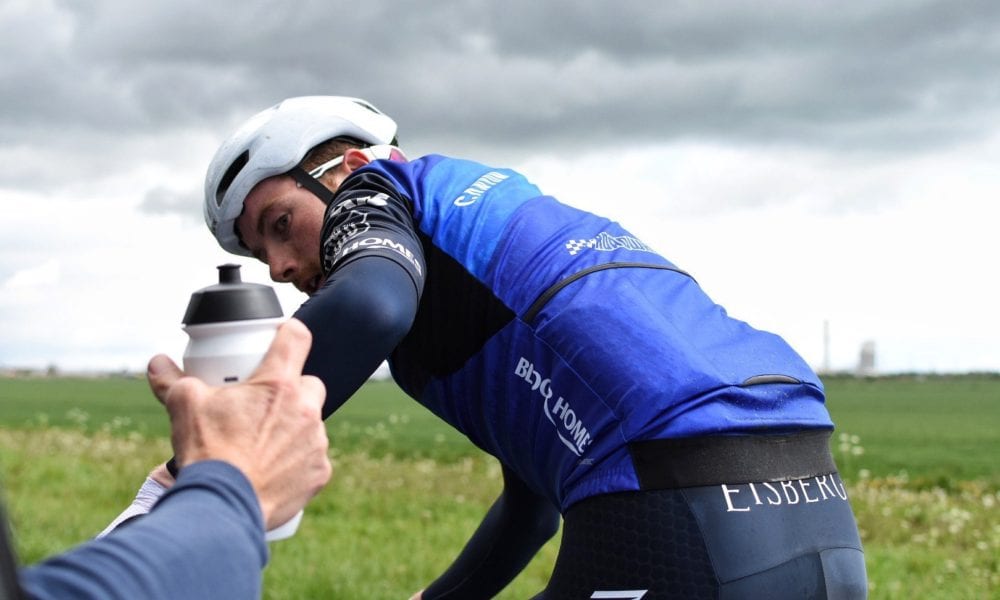Why is Hydration So Important & How to Stay Hydrated
Taking into account hydration is crucial for your running, whether you’re just starting out with your Couch to 5k or doing an Ultra. It’s not just seasonal either, it’s just as important to think about it in the winter as the summer.
According to OTE, when we exercise, our heat production is 15-20 times greater than when we are at rest and this is in standard conditions, so it can be increased by a multitude of factors including humidity, altitude and exposure to the sun. As well, we can affect our own temperature by the clothing we choose too.
So why does our temperature matter?
According to OTE:
As the body’s core temperature rises due to exercise, the majority of the heat being dissipated is by the evaporation of sweat. Blood flow has to distribute itself between our organs, working muscles and now our skin for sweating. As the intensity of exercise increases, sweat rates will increase which actually reduces our blood volume and stroke volume. The heart then has to work much harder to deliver oxygen to working muscles and thus affecting the intensity of exercise we can maintain.
Not only do we lose fluid through sweating but also electrolytes. The primary electrolytes present in sweat during exercise are sodium and chloride with smaller amounts of magnesium, potassium and calcium also present. Sodium is important for ensuring the maintenance of the body’s extracellular fluid volumes which sequentially affects blood volume and pressure. This can be achieved by maintaining a simple balance between intake and excretion. It is when this sodium equilibrium is not maintained during exercise, often through erroneous feeding strategies, that individuals can develop health complications e.g hyponatremia.
In sum, dehydration will always negatively affect performance!
So what can we do to combat it? Let’s take it in steps!
Before You Exercise
Pre-hydrating is super important, and it’s something you need to think about well in advance of your exercise. If you’re feeling dehydrated when you’ve got an event coming up, one of the best methods to rehydrate before an event is to sip an electrolyte beverage about 4 hours before an event.
During Exercise
We all sweat differently! Variation is anywhere from 0.4L to 1.8L per hour depending on conditions, sports (intensity!) and individuals. A basic method created by OTE is to weigh yourself before and after a training session. Here’s their Guide:
To keep it simple a one-hour session can give you a good idea of your sweat rate, especially if you can simulate the conditions you will experience when racing in terms of climate and intensity.
Follow these simple instructions:
- Weigh yourself naked immediately before exercise.
- Train for one hour and monitor how much fluid you take on board.
- Weigh yourself again naked immediately after exercise.
After exercise, the calculated change in body weight will give you an indication of fluid loss.
For example:
- Ambient temperature: 25°C
- Pre-exercise weight: 70Kg
- Post-exercise weight: 69.5Kg
Fluid volume consumed during exercise: 500ml
This indicates your sweat rate would be 1ltr/hour (70Kg-69.5Kg = 500g + 500ml = 1)
Under these conditions, you can be plan hydration and fuelling strategy based on drinking 1ltr/hour.
If you are training or racing for longer than 90 minutes then taking a medium-sized banana or energy gel alongside drinks should provide you with about the right amount of energy you need per hour.
Thirst is also a good way to dictate when to drink. As a rule of thumb, it is always good practice to stay just ahead of that feeling of thirst. Consuming electrolyte drinks, such as OTE Hydro Tabs, will aid the absorption of fluid and also promote the feeling of thirst and further drinking. This is more beneficial than consuming just plain water.
Post Exercise
We’re all guilty of it – finishing a run and having a quick sip but then not thinking about what we’re drinking over the next few hours!
It’s such a huge part of how well we recover and it’s important that we don’t just drink when we feel thirsty but consistently. When running we put serious stress on their body and this means it can take between 4 and 24 hours to re-hydrate. When you’re training or racing on consecutive days, we have to take steps to make sure we re-hydrate as quickly as possible. OTE again has simple rules If rapid rehydration is needed: athletes should aim to consume 1.5L of fluid for every 1kg of body weight lost during exercise over the first 2-4 hours of finishing. The extra amount is to compensate for the likely increase in urine output. Consuming fluids that contain electrolytes will help with fluid retention by minimising urine losses. Alternatively consuming salty foods such as nuts or pretzels alongside fluid can have the same effect.
The OTE Whey Protein Drink is a great idea for after exercise as it ticks off all the important areas of recovery, and in terms of rehydration is obviously fluid and contains electrolytes!



